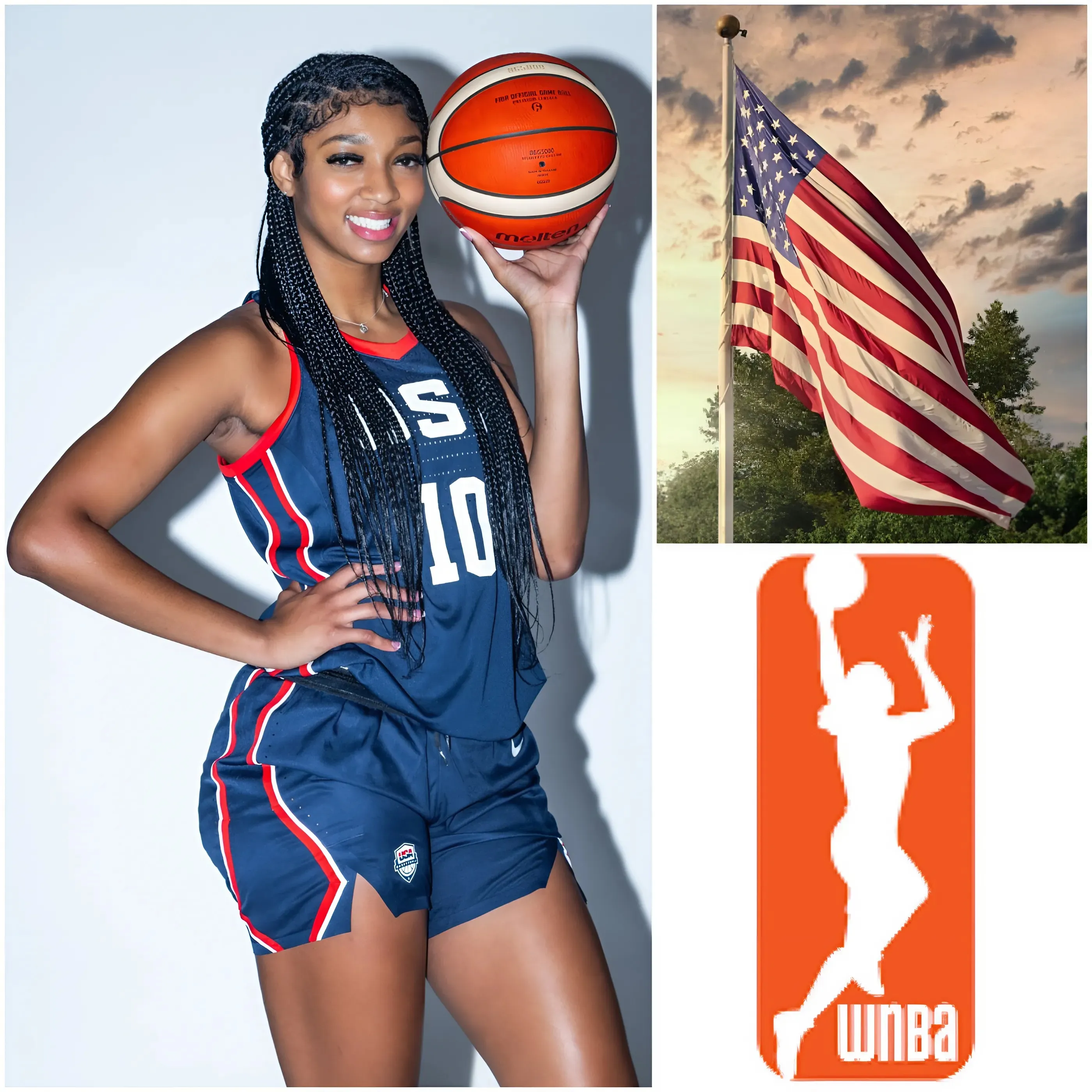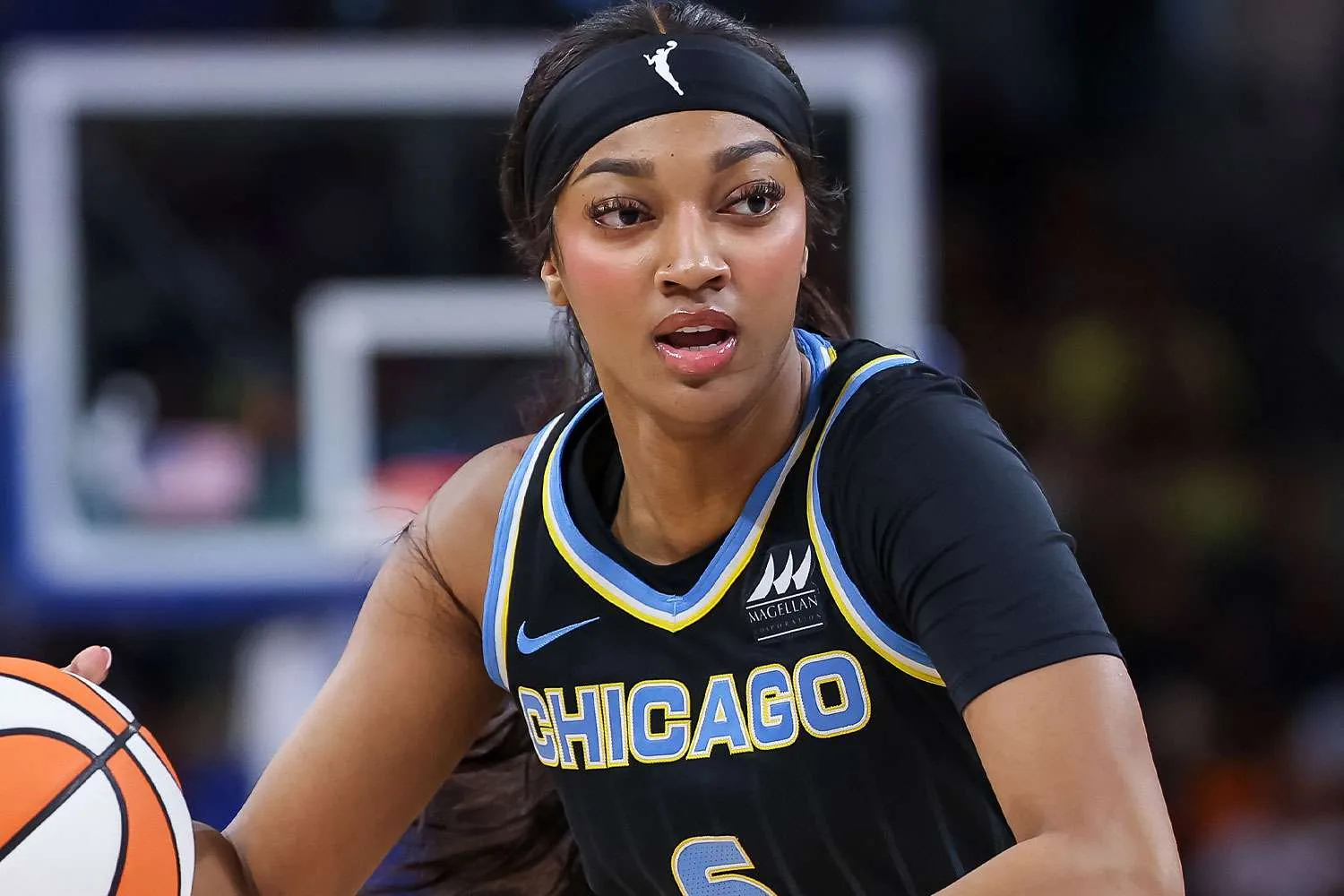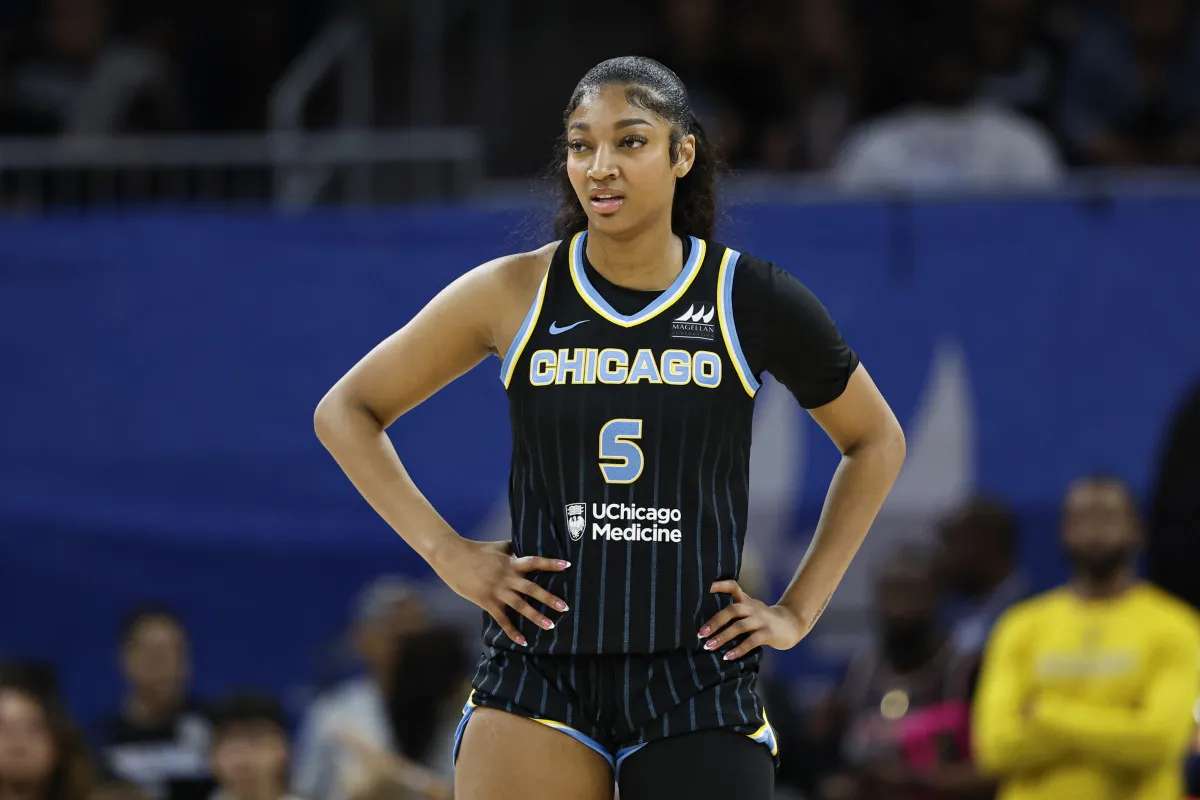This unexpected decision has sent ripples through the basketball community, leaving fans, analysts, and fellow players in disbelief.
Angel Reese, known for her exceptional talent and fierce competitive spirit, has risen rapidly in the ranks of women’s basketball in recent years.

Her performances on the court have consistently drawn attention and admiration, solidifying her status as one of the most promising young athletes in the sport today.
Yet, despite her impressive skill set and rapidly growing fame, Reese found herself embroiled in a dispute that she never anticipated—a contentious salary disagreement with the Women’s National Basketball Association (WNBA).
Salary disputes within the WNBA are nothing new, but Reese’s case has brought renewed attention to ongoing concerns surrounding athlete compensation, highlighting significant discrepancies between men’s and women’s professional basketball salaries.
Reese’s decision to leave the U.S. represents a bold stand against what many see as systemic inequality in women’s sports, raising important questions about fair pay, athlete recognition, and the financial sustainability of women’s professional basketball in America.
At the heart of Reese’s conflict is the stark contrast between WNBA salaries and those offered by international leagues, especially in Europe and Asia.
These international leagues have increasingly become attractive destinations for talented players due to their willingness to offer significantly higher compensation packages, along with enhanced opportunities for sponsorship and global exposure.
Reese’s move overseas underscores a troubling trend for the WNBA, highlighting the league’s ongoing struggle to retain top talent in a highly competitive global sports environment.
Angel Reese, who played college basketball at Louisiana State University (LSU), achieved national recognition with her dominating performances, leading the LSU Tigers to historic wins and captivating fans nationwide.

Her talent was undeniable, and many anticipated her seamless transition into the WNBA, predicting she would quickly become one of the league’s standout stars.
However, shortly after her professional debut, it became clear that Reese felt undervalued by the league that had eagerly welcomed her just months prior.
The crux of Reese’s dissatisfaction stemmed from the financial arrangements offered by the WNBA, widely perceived as insufficient compared to the substantial contracts frequently awarded in men’s basketball leagues such as the NBA.
In numerous interviews and statements released through her representatives, Reese expressed frustration over what she described as “unacceptable” and “disappointing” salary terms, highlighting that the compensation did not accurately reflect her value as a professional athlete.
Negotiations between Reese’s representatives and the WNBA reached an impasse, with neither side willing to concede their positions.
The resulting stalemate intensified Reese’s determination to seek better opportunities abroad, a move that many players have previously considered but few have taken in such a public manner.
The athlete’s decision was initially met with shock and disbelief, particularly due to Reese’s rapidly ascending status in American sports media.
Analysts speculate her departure could potentially catalyze meaningful conversations about pay equity and athlete welfare, prompting the league to reconsider its compensation practices.
The repercussions of Reese’s decision extend far beyond her own career trajectory, impacting how future contract negotiations and athlete management policies are approached.
Several high-profile athletes, both within and outside women’s basketball, have publicly supported Reese’s bold stand, applauding her courage in highlighting an often-overlooked issue.
Social media platforms erupted in reactions, with fans and peers rallying behind Reese’s message, underscoring a shared frustration over persistent wage disparities between genders in sports.

The WNBA, on the other hand, faces renewed pressure to review its financial structures and salary policies.
League officials have historically cited budget constraints and market limitations as primary reasons for comparatively lower salaries offered to their athletes.
However, with mounting criticism and increased public scrutiny, experts predict that the WNBA may soon be compelled to revisit these arguments and consider new financial models that prioritize athlete retention and fair compensation.
Reese’s choice to pursue her career internationally not only highlights the immediate financial benefits but also opens discussions regarding the broader implications of athlete migration.
International leagues have increasingly become significant competitors for American-based talent, attracting players with promises of better financial incentives, improved conditions, and greater recognition.
Reese, who has not yet disclosed exactly where she plans to relocate, has indicated that she received multiple lucrative offers from professional basketball teams in Europe and Asia.
These offers reportedly surpassed any potential deal presented by the WNBA, illustrating the widening gap between domestic and international basketball markets for female athletes.

Basketball analysts argue Reese’s departure could set a powerful precedent, influencing other talented athletes who may similarly question the value of remaining in the WNBA if alternative options abroad prove more beneficial.
Ultimately, the WNBA must address these structural financial issues if it wishes to retain its brightest stars and remain competitive globally.
Angel Reese’s decision to leave the U.S. in pursuit of fairer compensation may represent a watershed moment in women’s sports history, prompting meaningful policy changes and increased awareness around the ongoing challenges facing female athletes.
Her actions highlight not just a personal stand but a broader social commentary, underscoring the urgent need for equality and fairness within professional sports compensation.
As Reese embarks on this new chapter abroad, the sports world watches closely, eager to see how this bold decision will shape future conversations around athlete compensation, gender equality, and the global dynamics of professional basketball.



